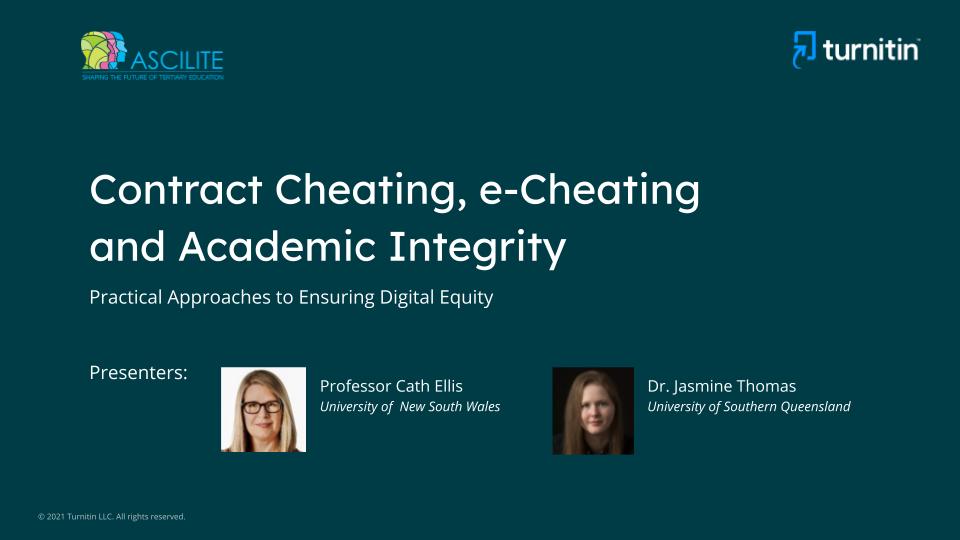In light of the shift to remote learning and the associated challenges, two very common questions have emerged:
"Are my students learning and taking ownership for their assessment outcomes?" "Are my students submitting their own original work?"No institution is immune from the risk of contract cheating - the practice of students engaging a third party to complete assignments - but there are ways to combat this insidious form of misconduct.
- Concepts such as contract cheating and e-cheating, and how to distinguish between the two
- The mechanisms of contract cheating and e-cheating and how these play a role in informing assessment with integrity.
- Digital equity, what this means, and how to promote a culture of original work within student cohorts
- Best practices to bolster the design and delivery of assessment to ensure digital equity of student work
- Interpreting Turnitin Originality scores to prove digital equity and support academic misconduct procedures
- Harnessing the powers of technology in fortifying assessments to ensure integrity and authenticity of student work
All are welcome, however, this is particularly relevant to Academic Integrity officers and Academic System Managers, in Learning, Teaching and Development; Digital Learning officers and anyone who is interested in setting up academic integrity practices within their institutions.
"Contract cheating is real and it’s threatening academic integrity. Don’t wait for a contract cheating scandal that will wound your institution’s reputation"



